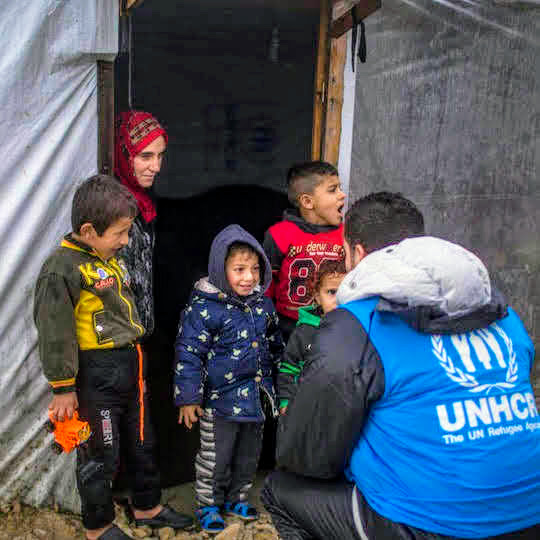Monitoring of the Effects of Economic Deterioration on Refugee Households, Wave 3 (SYR) 2020
Lebanon, 2020
Get MicrodataIdentification
UNHCR_LBN_2020_MEED_WAVE3_SYR_v2.1
Monitoring of the Effects of Economic Deterioration on Refugee Households, Wave 3 (SYR) 2020
| Name | Country code |
|---|---|
| Lebanon | LBN |
The Monitoring of the Effects of the Economic Deterioration on Refugee Households dataset is a Phone survey of Syrian and non-Syrian households to monitor the changes over time in key areas in the context of the deteriorating economic situation in Lebanon. This wave focuses on: livelihoods, economic vulnerability, living conditions, access to health services, food and livelihood coping strategies, covid-19. This dataset includes only the Syrian refugees cases.
Sample survey data [ssd]
Household
Version
v2.1: Edited, cleaned and anonymised data.
2021-04-09
Scope
The scope includes:
- Livelihoods: Loss of jobs, salary cuts, job retention and new job opportunities
- Economic vulnerability: household debt
- Living conditions: rental costs, mobility, eviction and eviction threats
- Access to health services: demand and access to primary healthcare and hospitalization
- Food and Livelihood Coping Strategies: Rates of key negative food and non-food related coping strategies
- COVID-19: Access to hygiene items
| Topic |
|---|
| Food security |
| Education |
| Return |
| Shelter/Other Infrastructure |
| Health Care Referral Services |
| Domestic Needs/Household Support |
| Livelihood & Social cohesion |
| Income Generation |
Coverage
National coverage
Producers and sponsors
| Name |
|---|
| UNHCR |
| Name |
|---|
| WFP |
Sampling
A nationally representative sample was extracted from the UNHCR database in Lebanon using a simple random sampling approach. Two nationally representative samples were extracted: (1)Syrian refugees, and (2)Non-Syrian refugees. Data collected through the call center via Phone survey. To account for non-response rate, 1,000 Syrian and 1,000 non-Syrian cases were sampled. NB: Please note that while comparison is usually made to VARON/VASYR, methodologies completely differ and as such comparisons should be approached with caution and not interpreted to the dot. Results: 60% response rate for Syrians, 588 interviews completed.
Survey instrument
The questionnaire included key indicators on household demographics, shelter, expenditures, livelihoods, debt, coping strategies, food security and consumption, and health.
Data collection
| Start | End |
|---|---|
| 2020-09-15 | 2020-10-15 |
| Name |
|---|
| UNHCR |
Interviews were made by phone.
Data Access
Please cite as follows:
UNHCR (2020) Monitoring of the effects of Economic Deterioration on Refugee Households, Wave 3, UNHCR microdata library, https://microdata.unhcr.org
Contacts
| Name | Affiliation | |
|---|---|---|
| Curation Team | UNHCR | microdata@unhcr.org |
Metadata production
UNHCR_LBN_2020_MEED_WAVE3_SYR_v2.1
| Name |
|---|
| UNHCR |
2020-04-04
Metadata version
UNHCR_LBN_2020_MEED_WAVE3_SYR_v2.1
